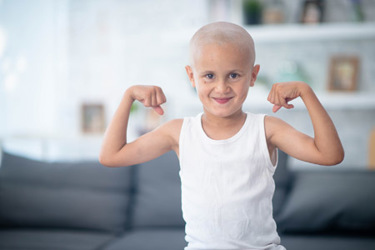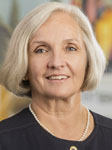LLS is Working To Change The Pediatric Clinical Trial Model

By Ed Miseta, Chief Editor, Clinical Leader

I was recently made aware that cancer is the leading disease-related cause of death in children. That information came to me via The Leukemia & Lymphoma Society (LLS), which recently launched a first-of-its-kind global master clinical trial for pediatric acute leukemia.
Cancer in children is rare, and there are certainly more common diseases that afflict them. But children do not die of those diseases at the same rate adults do. Treatments have also become available for many childhood ailments. As a result, cancer has moved up the list and now has the highest fatality rates in children. In the blood cancer space, the disease is fatal to 15% to 20% of children who are diagnosed with it.
Gwen Nichols, chief medical officer for LLS, believes this situation must change. Unfortunately, the time it takes for new treatments to reach children through clinical trials for pediatric cancer is lengthy due to outdated trial protocols.

Streamline a Difficult Process
Nichols notes in pediatric clinical trials, answers do not come quickly. The trials are time consuming, and many sites are required. That means costly studies and an end market that is small. This leads pharma companies to adopt a business model that focuses on an indication that will help the most people.
“There is nothing wrong with that philosophy,” adds Nichols. “If I were in their place, I would do the same thing. If you can help thousands of blood cancer patients versus 100 kids with leukemia, the choice may seem like an easy one to make. But that model also means children will always be at the end of the line. The solution to this problem is to change the operational model for how we conduct pediatric clinical trials.”
Changing the pediatric clinical trial model is exactly what LLS is attempting to do. The recently launched Pediatric Acute Leukemia (PedAL) Master Trial is at the heart of LLS’s Dare to Dream Project, which is attempting to transform treatment and care for kids with blood cancer. Dare to Dream is the next phase of the LLS Children’s Initiative, which envisions a world where childhood blood cancer patients not only survive but thrive after treatment. The multi-year initiative also expands education and support services for patients and families, drives advocacy and policy efforts, and increases investments in childhood blood cancer research.
“The PedAL Master Trial is a novel concept,” notes Nichols. “In most pediatric trials, there is a targeted therapeutic. A drug developer would then open hundreds of sites and screen thousands of patients to find 20 that can be admitted to the trial. With PedAL, the goal is to screen all kids and conduct multiple trials. Pharma companies can then move forward with those patients that are appropriate for their agent and their trial. We split the cost of the screenings and the cost required to keep a site open. This changes the dynamic of these trials and will allow drug developers to see a path forward to performing pediatric trials.”
Creating More Care Options for Children
LLS, in collaboration with the National Cancer Institute (NCI) and the Children's Oncology Group, is attempting to have multiple therapeutic options in a pediatric clinical trial so that there aren’t a lot of kids screened and then told there isn’t a trial option available for them.
The first agent that will be evaluated in the PedAL trial is venetoclax, a treatment that is already FDA approved. Although it has been approved for use in adults, there must still be a patient extension performed for the product to be used in children, and that requires a pediatric development plan. This is exactly what LLS is doing with this clinical trial. While there is some overlap in the biologic profile of leukemia in kids versus adults, the two groups present quite a different biologic profile. The targets are likely to be different for a sizable percentage of children, meaning the testing of those agents approved in adults is not the only answer.
A cancer diagnosis is difficult for adults. Although receiving that news can be a shock, adults getting the diagnosis can have a conversation with their spouse and oncologist to try and figure out the best steps forward. The diagnosis is more difficult when the patient is a child.
“A parent or caregiver will generally notice a horrible bruise on the child after play time,” says Nichols. “The child will stop eating and parents will eventually receive the leukemia diagnosis. That can be hard for them to fathom. Another complication is that young families often do not have the best insurance or means to take care of their children. The diagnosis can be a terrible strain on families. When a child must be admitted to the hospital, someone needs to be there with them. They cannot make medical decisions for themselves. That means one parent is no longer able to work. If that family is dependent on two salaries to pay the bills and keep food on the table, it can lead to a serious financial strain.”
Bringing Everyone Together
In planning the PedAL trial, LLS first opted to talk to leukemia leaders in the U.S. to determine if there would be interest in the LLS clinical trial. The group also contacted NCI, the Children's Oncology Group, and other pediatric cooperative groups to sit down and discuss the trial. St Jude's Children’s Research Hospital, MD Anderson Cancer Center, and Dana Farber Cancer Institute all have a cooperative group. There is also a group called TACL, a cooperative group led by the Children’s Hospital of Los Angeles. All these entities are part of the Children's Oncology Group but have separate collaborations.
“I spoke to these groups and told them we are not trying to interrupt their academic work,” states Nichols. “We are trying to gain power in numbers. We want to make sure every child gets their tumor cells genomically screened. That is being done at large academic hospitals, but often not at smaller pediatric institutions. Oftentimes, the screening is also not covered by insurance. In those situations, the samples are put in a freezer and do not get analyzed. We do not learn what targeted therapies are needed because we do not look for the targets. With the PedAL study, LLS can ensure the sequencing gets done. That was the easier part. The second part was trying to figure out how to collaborate and do the same trials in Europe and the U.S. with everyone having the ability to participate.”
Even if one of those groups is conducting a small trial, the goal would be for the data to come into a centralized area so that all scientists could learn from the data, understand what companies they should be talking to, what therapies need to be developed, and whether it is appropriate to test a new therapy in kids which has a signal in adults. A large and powerful group, in this case consisting of LLS and other organizational leaders involved in PedAL, can then approach pharma companies in a unified manner. The message for pharma companies is that the group can help them conduct pediatric clinical trials in a reasonable timeframe and with good-quality data. Nichols believes that is the best way to change the slow progress that has thus far been made in pediatric cancer.
Ways To Improve Pediatric Recruitment
Trials in the pediatric space have been difficult, and there are many pediatric clinical trial challenges companies face. Patient recruitment is certainly one of them. Nichols has learned a few things from working with children’s trials. First, she believes the industry needs to do a much better job of making it easier for physicians, nurses, and caregivers to become aware of available trials. She believes pediatric oncologists are much better than adult oncologists at placing children into clinical trials.
“There are 200 U.S. sites in the Children's Oncology Group and they capture 70% to 80% of childhood cancer patients in their group trials,” she says. “That's fabulous, but they are doing big Phase 3 trials and they are not always conducting the smaller, more targeted trials in a coordinated way at all of these sites. That is the area where we need greater coordination. Physicians and parents will do whatever they can to help these children, but they must know what is available.”
There are many roadblocks to trial participation, such as location and travel expense, and LLS is trying to eliminate those barriers as well. All families and their clinicians can access support from LLS Clinical Trial Nurse Navigators, registered nurses who can help families understand and navigate the pediatric clinical trial enrollment process. With support from LLS, The University of Chicago’s Pediatric Cancer Data Commons (PCDC) has developed GEARBOx (Genomic Eligibility Algorithm at Relapse for Better Outcomes), a unique search tool that will help healthcare professionals all over the world quickly match patients who have relapsed or refractory disease to appropriate clinical trials and lifesaving treatments.
“Families who have sufficient financial means are the ones participating in trials,” states Nichols. “We need to change that and make it possible for all children to participate in a trial.”
Nichols also believes there is much we can do to better educate families and healthcare workers. “There is a lot of training that needs to be done,” she says. “There is only so much we can do in a hospital setting where employees are in crisis mode. I encourage healthcare providers, social workers, and families to contact LLS. We have an amazing array of educational resources and human beings in our information resource center. Family members can call 1-800-955-4572 Monday through Friday, and talk to a health educator or social worker. Arming yourself with as much information as possible is the best thing a parent or a caregiver can do to help themselves.”
